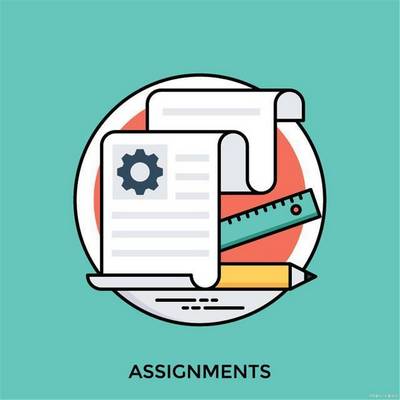- A+
英语的重要性现在已经不言而喻了,而对于中国这样一个越来越国际化的国家,口语交流能力也变得越来越重要。
不管你是要到高级企业就职,还是想出国留学、游学,亦或是自己创业做国际化生意,都需要足够的口语能力。
但这个能力似乎一直是大部分中国人的弱项。
到底要怎样才能提高我们的口语能力呢?Quora网站上的这则分享或许能给你答案:
How can I become fluent in English?
怎样说一口流利英语?
获得30,7k好评的回答@Sandeep Manudhane
Don't set fluency targets - Never ever commit the mistake of setting a "number of words spoken per minute" kind of targets. They are destructive as they do not allow the mind to really work constructively without pressure.
别设定什么流畅度目标——永远别定“一分钟应该说多少个词”这种错误目标。这样你就没办法正常地毫无压力地表达,会打乱你的节奏。
Be a natural - Let things happen naturally. As you read more, and convert the read word into spoken word, your speed will gradually pick up. Do not be artificial.
自然点——顺其自然。随着阅读量增加,把你读到的转化成你说出来的,语速自然会提高。别刻意追求速度。
Read, read, read - As you read more, your confidence about issues / topics / subjects will grow. You will start owning knowledge. You will develop an inner, natural strength. It is a matter of time that is starts showing on your face.
读,读,读——你读得越多,你对事情、话题、主旨的把握就越有自信。你开始积累更多的知识,培养自己由内而外、自然而然更优秀的气质。随着时间的沉淀,这种气质自然会显露出来。
Write at least 1 essay per day - It is the ultimate test of what you are learning, and if you are learning something at all. Pick a plain paper, think of a topic, and write an essay (300 words max) on it. Do it every day. It will very productively force you to raise the level of the game.
每天写一篇文章——这是考察你到底学了什么、有没有学到真东西的终极考验。拿一张白纸,想一个主题,然后写一篇文章(不超过300字)。每天坚持。这是推动你进步的数量上的保证。
Be measured while you speak - Do not try to outgun anyone in the group. Take a few seconds before you react (2 or 3 seconds, say). That will ensure that you do not over-react, instant-react, or wrong-react.
想好了再说——不要试图压倒每一个组员。在作出反应之前思考2到3秒,以保证你不会表现过激、仓促或者出错。
Talk to yourself - You will never be 
ashamed doing that. Keep doing it regularly. It will open up your tongue.
和你自己对话——你不会为此感到害羞的。检测有规律地练习。这会让你敞开心扉。
Shout, at least once a day - Go to the rooftop literally, and shout aloud. Do that for some minutes. Speak something sensible if you can. It will train the mind not to be scared of anything. Of course, if you do that elsewhere, people may beat you up :)
大喊,至少每天一次——去屋顶,大声喊。喊几分钟。如果可以的话,说一些有感而发的话。这会让你内心变得更强大。当然,如果你不分场合地喊,肯定会被打的。
Love yourself for what you are - This is perhaps the most crucial step. If you hate yourself for not being a fluent English speaker (as per whatever random benchmark you've adopted), your sense of self-worth will be destroyed. Don't let that happen to you.
接受自己,爱自己的样子——这可能是最重要的一步了。如果你恨自己的英语不够流利(或者随便其他你要求自己做到的事情。)你的自我肯定就会被摧毁。不要让这
发生在你身上。
I have come across some really fast speakers who talk sense, and some who are idiots; some measured speakers who talk a lot of sense; and some slow speakers who are a pleasure to listen to.
我遇到过很多讲话很快又很有道理的人,遇到过说话很快却很愚蠢的人,遇到过说话有分寸而且很有道理的人,也遇到过一些说话慢慢的却让人很乐意听下去的人。
It all depends on your profession, your eye-contact and body language, and the choice of words + depth of knowledge.
这一切由你的专业水平、眼神交流、肢体语言和用词、知识深度来决定。
So relax, and start your personal journey of success! It will take time, so buckle up. Wish you great luck.
所以,放轻松,找到适合你自己的方法吧!可能要花一些时间,所以要有耐心。祝好运。
一个人怎么练习英语口语?
我们都知道英语需要练习,多开口说才能进步。但是对大多数中国人来说,没有和别人一起练英语的机会。那么,一个人怎么练英语呢?下面这个视频中分享了一些实用技巧还有示范过程,多加练习可以帮助我们提高自己的英语水平。

I think you already know that if you want to improve your English speaking skills, you have to practice, right? you have to speak, studying grandma will never improve your speaking, listening to English alone will never improve your speaking. You have to actually speak. but what if you don't have someone to talk to in English? how can you practice them?
我想你已经知道,如果你想提高你的英语口语能力,你必须练习,对吧?你必须开口说。只学习语法永远不会提高你的口语能力,单单练习英语听力也不会提高你的口语水平。你得真正开口才行。但是如果你身边没有可以用英语交谈的人怎么办呢?那样的话你该怎么练习呢?
Well, there's a technique that allows you to learn to speak English by yourself, no speaking partner is required. this technique can help improve many aspects of your spoken English: your sentence structure, your grandma, your vocabulary, and most importantly, your ability to express your thoughts and ideas effectively. so what 
is his technique? Here's what it is....
其实,这里有一个可以让你不需要对话伙伴,自己练习口语的技巧。它可以从方方面面帮助你提高英语的口语能力:句子结构、语法、词汇,最重要的是,它可以有效地提高表达思想和观点的能力。那么这个技巧是什么呢?那就是......
Learning to speak English throug himitation. when I say imitation, I'm not talking about repeating after Native speakers, using the exact same word to improve your pronunciation. I'm talking about something, a little more advanced than that. here's how it works: you listen to a conversation, a story, or some kind of speech, and then try to deliver that speech in your own words.
学习通过模仿来说英语。我所说的模仿,并不是要你把母语人士所说的话一字不落的重复跟读来提高你的发音,我说的这个方法要比这个好用多了。它是这样的:在你听了一段对话,一个故事,或者演讲视频,尝试着用你自己的话来复述出来。
let's see this technique in action:
(让我们看看实际操作是怎样的)
(听) when I was a child.(说) when he was a child.
(听) my parents liked to pretend, like many other parents.(说) his parents liked to pretend, like many other parents.
(听) that SantaClauswould bring us presents at Christmas. (说)hisparents like topretend that Santa Claus would bring them presents at Christmas.
(听) so when my siblings and I would wake up on Christmas morning,(说)so when he and his siblings would wake up on Christmas morning.
(听) There'd be abunch of presents, from supposedly. Santa clause, sitting in front of the fireplace,(说) there'd a bunch of presents, from supposedly Santa clause sitting in front of the fireplace.
So that's how it works. but that's just oneway to do it, there are other ways too. for example, instead of imitating small portions of speech, like phrases and short sentences, you can imitatelarger portions of speech. so in this case, you wait until the speaker completeat hought or an idea. then pause and try to express that idea yourself. another approach is to simply listen to the whole speech, and then try to deliver that entire speech yourself. so there are several ways to go about it.
这个技巧就是这么操作的。但是这只是一种操作方法,还有其他的方法。例如,不仅仅是模仿演讲中的短语和短句,这样的小块段落,你还可以模仿更大的段落。所以在这种情况下,你要等到演讲者说完一个完整的观点后,暂停视频,然后试着自己把这个观点表达出来。另一种方法就是单纯地听完整个演讲,然后试着用自己的话复述完整个演讲。所以其实有很多种方法应用这个技巧。
But what I recommend is to combine them all together, and I called this approach easy-to-hard imitation. Easy-to-hard imitationis based on the concept of progressive training. the idea is that your startwith something easy and then increase the difficulty of the activity, forcing yourself to get better.
但我的建议是把它们全部结合在一起,我把这种方法称为“从易到难模仿法”。从易到难模仿法是建立在渐进式训练的概念上而设计的。重点就是,从一些简单的内容开始,然后增加练习的难度,逼着自己变强。许多研究都发现这种培训是非常有效的。
A number of studies have found this kind of training to be very effective. here's how you can apply this concept: start by imitating small portions of speech first, like phrases and short sentences, then move onto imitating larger portions of speech, like long sentences or even groups of sentences, and finally, try to deliver the entire speech on your own.
接下来教你如何应用这个概念:首先以演讲为例,模仿演讲中小块段落,比如短语和短句,然后继续模仿更大的段落,比如长句乃至整段的句子。最后,试着独自复述完整个演讲。
This technique offers many benefits. you get to listen and imitate correct English, which helps you learn to form sentences properly. you get to learn idioms, expressions, and other speaking patterns that are used in day-to-day conversations. you get to learn grandma, when you imitate other people, you're learning grandma through a process called implicit learning. this is the process where the learning happens without you rawareness.
运用这个技巧有许多好处。你可以练习听力和模仿正确的英语发音,这有助于你学会说出正确完整的句子。你还可以学到英语中的惯用语、表达方式和日常对话中经常使用的其它口语句式。你还可以学到语法,当你模仿别人的时候,你其实在用一个叫做“隐性学习”的过程来学习语法,就是指在你没有意识的情况下学习。
This is how baby and children learn the grandma rules of their first language. when you imitate, you don't think about grandma. You're not try to understand why the present perfect tense is used in this situation or in that situation. Instead, you're focused on communication, on understanding and expressing ideas.
这就是婴儿和儿童如何学习他们母语语法的方式。当你模仿的时候,你不会去想语法。你也并不会试着去理解为什么现在完成时态被用在这种情境下或那种情境下。相反,你专注于沟通、理解和表达想法。
高效率学英语
A little effort every day, you will make a big difference.
覆盖英语学习需求者
| 听写 | 读书 | 翻译 | 班级 | 方法论 | 干货满满

